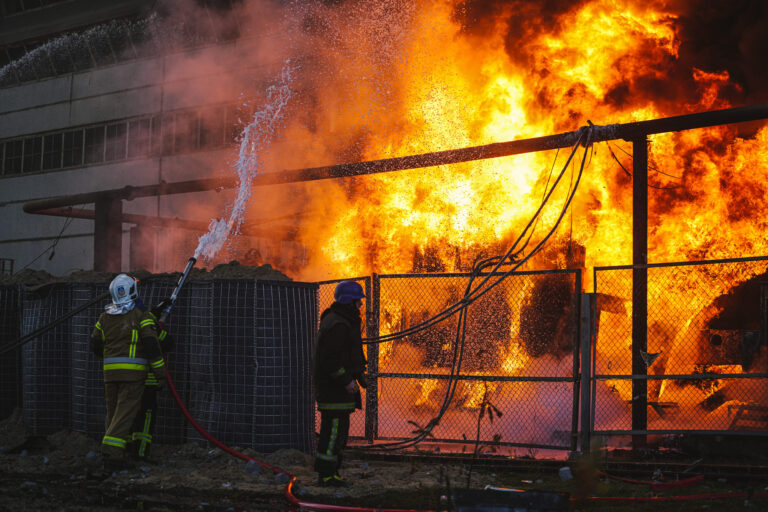In the last two weeks, Russia has escalated its military operations in Ukraine after a series of operational setbacks.
Ukrainian counteroffensives, its recapturing of Russian-held territory, and its destruction of major Russian weaponry over the last month provoked a series of intensified actions from Russia. These actions included the bombing of large cities and civilian centers, endangering Ukraine’s largest nuclear energy plant, and threatening the use of nuclear weapons.
In late Sept., Russian President Vladimir Putin ordered the call-up of 300,000 military reservists. The order has ignited discord amongst the Russian public and led to nationwide protests, attacks on military recruitment centers, and hundreds of thousands of men fleeing Russia to avoid conscription.
In light of Russia’s escalation of the war, the West has vowed to further bolster its support of Ukraine, supplying the country with more weapons and more powerful air defense systems.
Last week, Russia began making unfounded claims that Ukraine plans to use a low-yield radioactive weapon, commonly referred to as a ‘dirty bomb.’ Russia presented the claims at a United Nations Security Council meeting, and Ukrainian officials have vehemently denied the accusation. Western officials fear that Russia may be making such a claim to justify its continued escalation or carry out its threat of using a nuclear weapon.
Russia’s nuclear arsenal contains a vast range of weapons, differing in severity and strategic purpose. Military experts believe that a ‘tactical nuclear weapon’ is mostly likely to be used, which would be a more reduced-impact weapon than a full-scale nuclear bomb.
The war in Ukraine has pushed the world to the closest it has been to nuclear warfare since the Cuban Missile Crisis in 1962. Matthew Bunn, a professor at the Harvard Kennedy School, said that there is a “10% to 20% likelihood” that Russia will use a nuclear weapon, a probability which is “intolerably high.”
It is unclear what the West’s response to Russia would be in the event it uses a nuclear weapon. U.S. President Joe Biden said it would be “irresponsible” to discuss potential responses from the U.S., though he did state that the Pentagon already has possible response plans prepared.
One of the other major concerns in the ongoing war is the Zaporizhzhia Nuclear Power Plant, which is located in Ukraine and is the largest nuclear plant in Europe. Russian forces seized control of the plant in March, though Ukrainian staff members continue to operate it. Energy blackouts, a missile strike, and infrastructural mishandling of the plant continue to raise global anxieties about potential radiation emergencies. To date, Russia has not taken any steps to improve the conditions of the plant.
China and India, Russia’s two largest allies and trading partners, have both called for de-escalating of the war. Though the two countries failed to condemn Russia or Putin directly, both China and India are urging both Russia and Ukraine to participate in peace talks.




